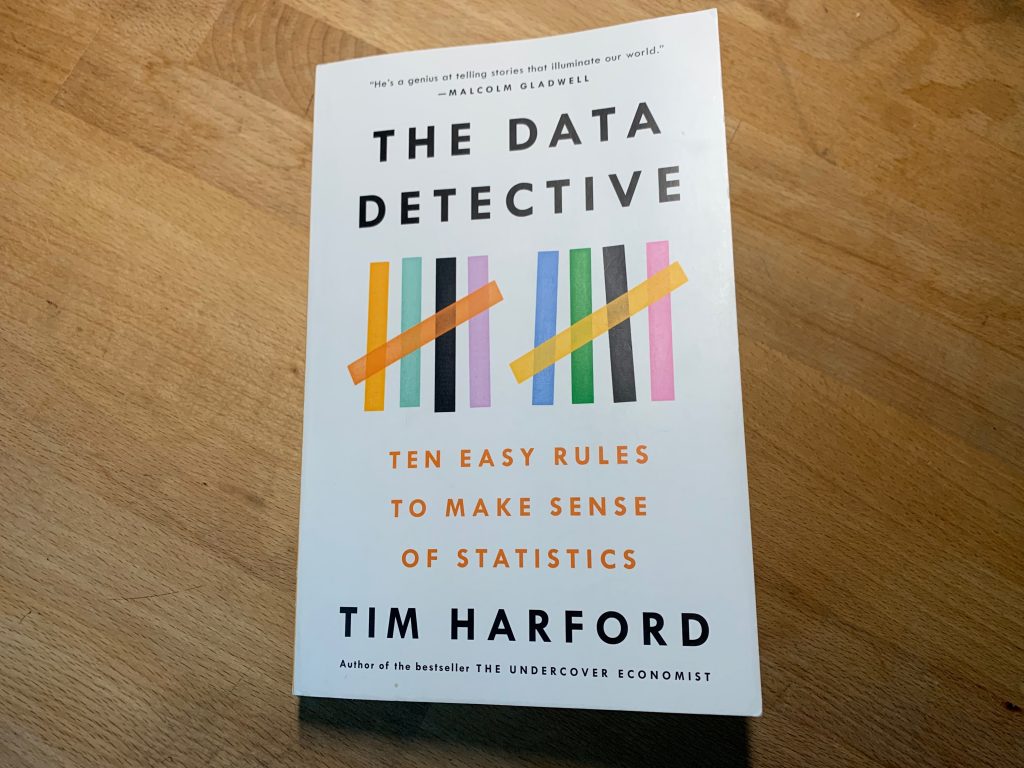Fact Check
Analysis: How Brain Shortcuts Undermine Policymaking
Thinking is hard work. Adult brains are only 2% of our body weight, but they use 20% of our body’s energy. To handle the load, we have evolved hard-wired shortcuts called cognitive biases that sometimes backfire. Public policymaking is not immune – it’s riddled with biases that are driving poor decisions. Read more
Read MoreBook Club — The Data Detective
The Data Detective: Ten Easy Rules to Make Sense of Statistics follows on the Book Club’s obsession with statistics and good data analysis (here, here, here, and here). Good policy rests on good evidence. There are good sources, including the books linked above, that uncover misleading information, with clues to identify them, and that’s important.…
Read MorePrimary care spending boost and capitation didn’t work in private plans either
The big idea circulating in some CT health policy circles to control the costs of healthcare is to boost primary care with tons of money and capitate provider payments. Primary care is regular health care for prevention, like check-ups, and common health problems. A new study finds that the idea failed in private insurance, as…
Read MoreOP-ED: Be careful in making changes when the glass is half full
There is good news on Connecticut health spending – and we can use it. Analysis of new data has found, not surprisingly, that Connecticut residents spend a lot on healthcare. But the good news is that our average annual rate of growth, at 1.8%, was the ninth lowest among states from 2013 to 2019. We…
Read MoreCost Cap finds drugs driving up healthcare spending, but we knew that, and their numbers are misleading
The latest analysis by Mathematica for the Office of Health Strategy’s plan to cap healthcare costs used a small slice of a small slice of Connecticut’s drug spending. We already knew, from other sources, that drug spending is a main driver of rising healthcare costs in Connecticut and the problem is skyrocketing prices. OHS’s analysis…
Read MoreBook Club: Think Again
You have to read Think Again: The Power of Knowing What You Don’t Know by Adam Grant. We all think our minds are open, but we’re wrong. Intelligence is nice, but the critical skills are rethinking, relearning, and the courage to dump baggage. The Dunning-Kruger effect is real – the people with the most confidence…
Read MoreCTNJ: Fact Check Shows That Raising Primary Care Spending Doesn’t Lower Total Healthcare Costs
The Office of Health Strategy and their consultants have asserted that it is critical to double spending on primary care in Connecticut to lower skyrocketing total healthcare costs. It’s very appealing to think that increasing investments in prevention and care management will reduce total costs. It avoids the difficult work of getting large health systems…
Read MoreWhy is healthcare like this?
Healthcare is complicated. It often doesn’t make sense – to consumers, patients, students, policymakers, providers, administrators, and everyone else. The lack of understanding has discouraged people from engaging and slowed progress toward real reform. We’ve heard from people across the continuum that there is no place to find balanced, comprehensive answers that is understandable and…
Read MoreFact Check: Does OHS’s Primary Care Roadmap include capitation? Yes, 31 times
In the Insurance Committee’s March 1st public hearing on HB-5042, advocates stated that the Office of Health Strategy’s Primary Care Roadmap plan, authorized in the bill, includes capitation as the payment model. Primary care capitation has failed in Medicare despite significant investment and multiple trials. Advocates are concerned that, if implemented, the Roadmap would divert…
Read MoreNew tool finds all CT health systems’ commercial prices are far higher than needed to cover expenses
According to a new tool, Connecticut hospitals would have needed commercial rates equal to 135% of Medicare levels in 2020 to cover their expenses, much higher than the US average of 114%. However, every health system in Connecticut charged well above that level, far more than needed to cover expenses. The National Academy for State…
Read More







